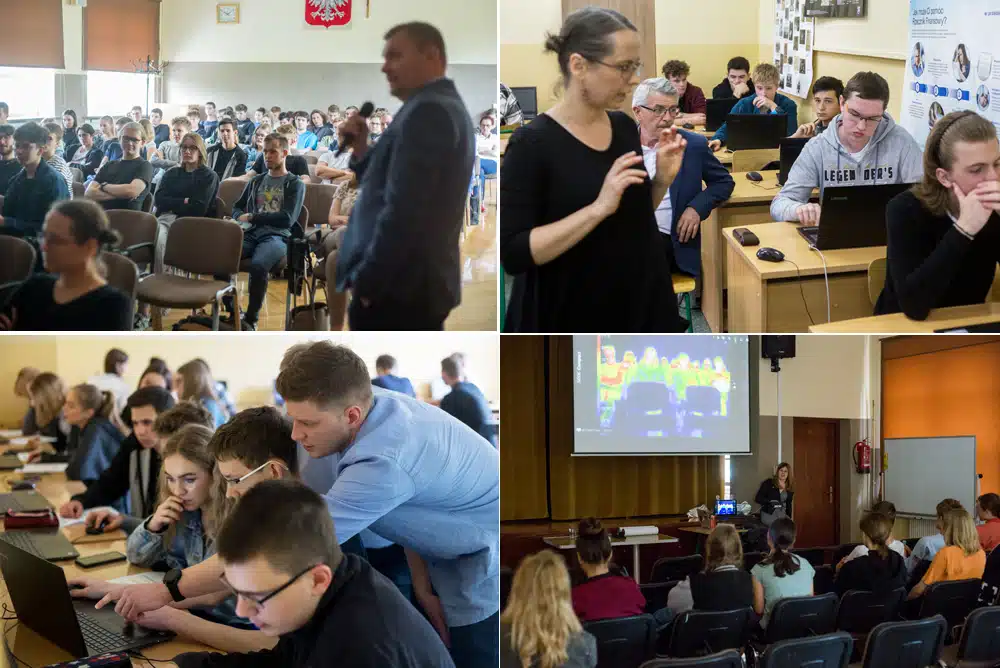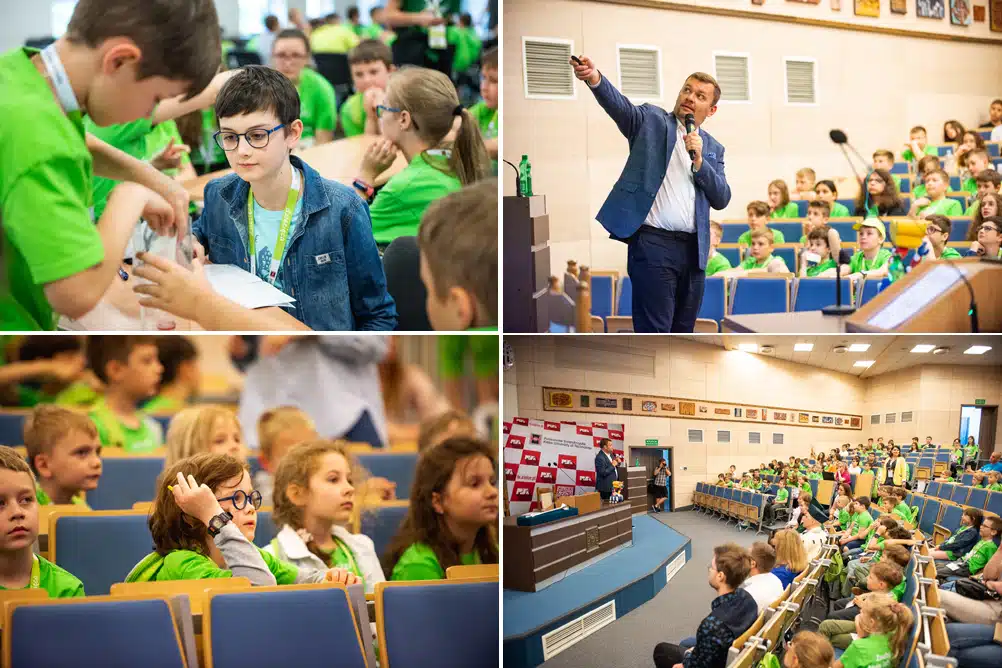Between February and June 2022, we ran a nationwide cycle of hands-on workshops and lectures for primary and high school students in six Polish cities, introducing them to space science and climate change monitoring. Using experiments such as Herschel’s invisible light test, thermal cameras, satellite data analysis and geoinformation exercises, participants learned how scientists gather and use data to track environmental changes on Earth. Supported by the U.S. Consulate General in Krakow, the program reached thousands of young people, sparking curiosity and showing practical applications of space technologies in everyday life.
Between February and June 2022, we organised a cycle of interactive workshops and lectures for primary and high school students in Ruda Śląska, Jasło, Opole, Wrocław, Sieczychy and Kielce. The programme, inspired by the “How do we know the climate is changing?” initiative, introduced young people to space science, climate monitoring and the practical use of satellite data. Each session combined short lectures with hands-on activities adapted to the students’ age and school environment. Using experiments such as Herschel’s invisible light test, thermal cameras, satellite data analysis and exercises with geoportals, participants discovered how scientists collect and interpret environmental data and why these skills matter for understanding climate change.

Across the six cities, thousands of students and teachers took part in the workshops, learning how technologies developed for space exploration can be applied to everyday life and to protecting our planet. Schools received educational posters with key concepts and links to NASA and NOAA resources, extending the learning beyond the classroom. Each stop on the tour also included community engagement elements, such as exhibitions or public lectures, and gave students the chance to meet experts, see real meteorites and test professional equipment. Supported by the U.S. Consulate General in Krakow, the project helped raise awareness of climate science while sparking curiosity about space, technology and sustainable futures.
